Trampoline
A Novel in five acts by
Robert Gipe
Reckoning
Part Three: Waterlight
Read Act II, Reckoning, from Trampoline
Part One: Dead Cow in the Creek
Part Two: Monster Birds
Read Act I, Escape Velocity, from Trampoline
Part One: Driving Lesson
Part Two: Smother
Part Three: What Hurts
" . . . Mamaw’s mouth gaped in the lamplight like a dead woman’s. Her breath was wind through the trees, rain picking up, drawing back, picking up again."
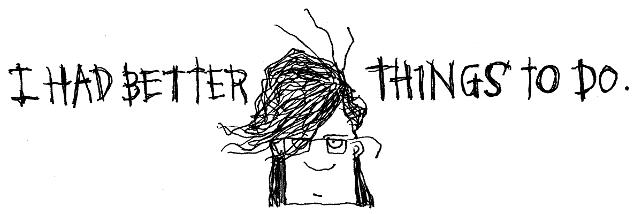
Willett Bilson said he wanted contact. Said people should call him on the air. Said he had an e-mail address and people could e-mail him. I didn’t know what e-mail was then. He gave the radio station post office address and I wrote it down in my book where I stuck my pictures. Willett Bilson talked about the winter night, about the stars, about the beauty of every season, about the reasons he liked the bands he liked. His voice whistled through his nose and I could tell he’d taken beatings. I could also tell he felt safe on the air. The sound of his voice come close on my ear like we were locked in the trunk of somebody’s vehicle together. I looked at a page in my book where I had pasted a picture of a truck in India had three hundred suitcases strapped on top of it. I drew a picture of myself next to it saying ‘too much baggage’ and next to that I taped a picture of schoolgirls with AK-47s, a hawk with a rat in its mouth flying off a cathedral, and three women gold miners from back in the San Francisco gold rush days. Willett Bilson said, ‘my musical pleasure has no measure.’ I wrote that out next to the pictures, and drew a picture of me saying ‘more punk rock. Not so many hippie bands.’ I folded the page up in the shape of an envelope and addressed it to Willett Bilson. I went to sleep with his music playing in my head. And that is how I survived the Saturday of Thanksgiving weekend.
~
Sunday morning Mamaw was gone. Bed made. Dishes rinsed off. Counter wiped down. Stacks made plumb. Generally, Mamaw kept things pretty junked up. Heaps of paper grew like spring flowers beside her bed, on the couch, everywhere. Her mind ran hot, buzzed like a blow dryer, taking in information, calculating, talking on the telephone. Slow down to clean the house and the assholes would run roughshod over America. There wouldn’t be nothing left. That’s what she said. But a day of pulling her daughter out of a tree and a night of waiting for me to get back from first Crater and Priscilla’s and then Decent Ferguson’s, must have took it out of her. She’d struck a lick getting the house ship shape and then lit out through a cloud of dollar store pine scent.
Another morning, another empty grandparent’s house for me. Didn’t matter. I was glad to hog up the morning sun at Mamaw’s house. Where she was on the ridge, and the way her house was angled towards back up the river, the sun came straight through the windows soon as it topped Blue Bear. I sat next to the front window by Mamaw’s curled-up withered-out houseplants and let the warm catch my face before it scoured out the dusty house. My face glowed, and I was a superhero, an extra-terrestrial, drawing strength from the rays of my home star.
I hoped I could sit til the sun got up on the roof and not have to fool with nobody. Just be myself. Think about anything I wanted. Willett Bilson.
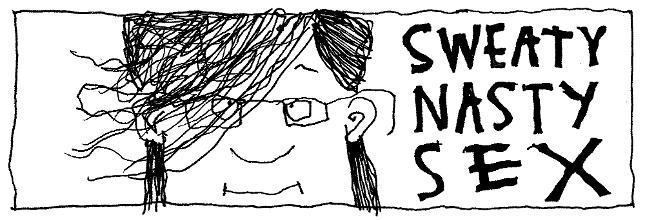
My brother Albert hanging by his nose from a ten-penny nail. Anything. I set out thinking, started with Momma. I thought about why she drank and smoked and run around like she did. She couldn’t settle. She couldn’t get something or another right. I wondered what it was, wondered what was off inside of her. She was scared of something, running like an animal from fire.
But maybe it was the opposite. Maybe she was chasing something, something she’d lost. Like when Daddy died. Maybe she was running to keep from thinking, wind in her face blowing the things she didn’t want to think about out of her mind. I didn’t know. How would I? I was fifteen, and more of a kid fifteen than a grown fifteen.
The light angled in on the floor. I lay down on Mamaw’s magenta wall-to-wall carpeting. The sun was orange against the inside of my eyelids. What goes on in your mind, Momma? I wanted to go see her, but I didn’t want to go to Hubert’s house. So I stayed at Mamaw’s. And the house stayed quiet.
I went into the kitchen to see what Mamaw had to eat. Nothing. I went in my room and got out the envelope I’d made for Willett Bilson. It looked stupid. I wasn’t going to send it. I dropped it on the floor, said if it landed with his address showing, I would mail it. It landed back side up. I dropped it again, which made me know I was going to mail it no matter what side it landed on.
I wondered had Mamaw gone to church. She did, every once in a while. She said she went when she’d forgotten how much it aggravated her. I didn’t go, not ever. Just never had.
I never thought much about what happens to you when you die. I never even thought of Daddy in heaven.

In a bad way, mostly, because he was just a memory, getting fainter all the time, like pictures in a magazine left on the backseat of a car. But sometimes he came to me as a spirit, and he’d tell me what to do.
When I was a little girl, I never had a thing to say. Not that I remember. I think of myself wanting to be around loud sounds—loud music and machinery. I think of myself standing under the eave of my father’s house, watching thunder and lightning, weather rared back on its hind legs. Loud noise natural I liked. Loud noise machine-made I liked. Loud noise human, I could not abide.
I looked for Mamaw to come in the house any minute. I was ready to know had she gone to church or was she gone to the woods. Ready for her to tell me one wasn’t no better than the other.
~
Momma came busting in the house through the front door while I was lying there on the magenta carpet. Nobody came in Mamaw’s through the front door.
“God Almighty, Dawn,” she said when she saw me. “Scare me to death why don’t you?”
Momma’s wet hair soaked her sweatshirt shoulders and clumped together in thick strings like it might freeze.

I thought yall were gone,” Momma said.
I looked around for something. I don’t know what. Something to give Momma, I guess. A pillow? She looked like a person needed a pillow. She had bruises on her neck and her bumpy blue wrists.
“What are you doing?” Momma said.
I shrugged. I really didn’t know. “Nothing,” I said.
“I doubt that,” Momma said. She took off her sweatshirt. She had on a too-small wore-out t-shirt with holes where the rest of the shirt was pulling away from the neck. She sat down on the edge of a chair stacked with newspapers, pulled out her cigarettes, and stopped when she remembered where she was. “I come looking for my coat,” she said.
“What coat?”
“That long leather one Hubert give me.”
“Mamaw sent that back.”
“You sure? Did you take it to him? When was it?”
Questions come out of Momma faster than I could answer them.
“Albert took it back last week,” I said.
“Hunh,” Momma said. She popped up out of the chair. “Come out with me and smoke.” She went through the kitchen on the way to the patio, and pulled one of Mamaw’s work coats down from the hook behind the kitchen door. Chair I’d knocked over on Albert was still turned over on the patio. Momma sat in the other one. I stood looking at her.
“Cold,” Momma said.
“Mm-hm.”
Momma looked me up and down. “Let’s go to Mexico,” she said. She smiled her crooked teeth at me. I knew she was fooling.
“Be nice,” I said. It would have been. Me and Momma. Take a vehicle from Hubert’s. But which one? They was all pretty shitty. Nobody went to Hubert’s to trade up. Always down.
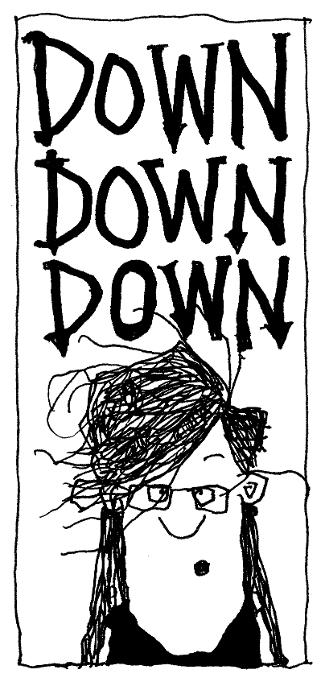
“Where’d your Mamaw go?” Momma said, her shoulders rolled forward towards one another, hands between her mashed-together knees.
“I don’t know,” I said.
“She’s been acting weird,” Momma said.
Momma talked to me more and more every day like I was her sister. “What do you mean?” I said.
Momma shook her head. “She don’t follow no pattern. Can’t count on her for nothing.”

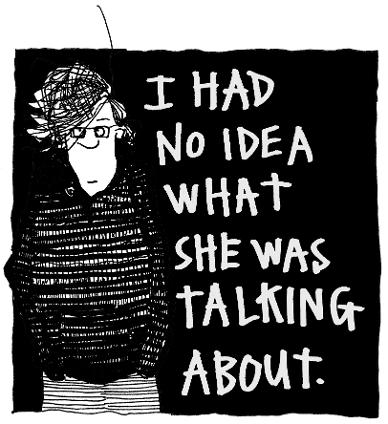
“Dye it green,” she said.
“That don’t sound like a good idea,” I said, but a smile come on my face.
“See,” Momma said, pointing two fingers at me with a cigarette between them. “See. You know I’m right.”
“You aint right.”
Momma jumped up. “Come on,” she said.
“Where?” I said.
“Hubert’s.”
“I aint going to Hubert’s.”
“Yeah you are. That girl Jan has a bunch of hair dye stuff left from Halloween.”
“God Amighty,” I said. But I went with her.
~
Hubert’s kitchen was way worse than when me and Albert’d put Momma to bed the night before. For one thing, the lights had all been knocked out.
“Hubert aint back from Virginia,” Momma said.
“Is he still in jail?”
“Hell if I know,” Momma said. “I hope not.”
The light come in through cracks around the foil and cardboard over the windows. Most of the light come in through one fresh-busted window over the kitchen sink.
“Where are we going to do this?” Momma stood with her hands on her hips. She turned on the spigot. “We’ll have to bleach it first.”

"Momma run the clippers up my neck, got it all bristly. Then they put the bleach to me. It went on like birthday cake frosting and burned like the candles."
“Should we cut it?” Momma said.
“No you aint,” I said.
“Probably,” Jan said. Momma and Big Jan looked at each other. “I’ll get the scissors,” Big Jan said.
“Get the clippers, too,” Momma said.
Big Jan laughed down the hall.
“Fuck,” I said.
“Quit your belly-aching,” Momma said. “It’s going to look cool.”
Big Jan run back up the hall with her scissors. That’s how it was at Hubert’s. You couldn’t pay a person to run unless they had something sharp in their hands.
“Sit up there,” Jan said, pointing with the scissors at the table. I climbed up on the table and she laid into me with a comb. “God Almighty,” Jan said, “don’t you never comb this mess?” She tried with the comb one more time and said, “I’m just gonna whack it off.”

She was still going at it when Momma said, “Let me in there,” and fired up the clippers. Their machine noise soothed me, but Big Jan laughed louder than the clippers. She walked barefoot through my falling hair and the crushed glass of the busted-out light bulbs from the night before and Momma run the clippers up my neck, got it all bristly. Then they put the bleach to me. It went on like birthday cake frosting and burned like the candles.
While we were letting it work, Momma said to Jan, “I heard Cinderella about got his ass killed.”
Big Jan said, “He’s crazy. Me and you might act crazy, but that man is crazy.”
“Yall cut off way too much,” I said touching the back of my head.
“You don’t know,” Momma said. “You aint even seen it.”
“Don’t get that bleach on you,” Big Jan said. “It’ll fuck up your clothes for real.”
The bleach crawled on my head like a pack of roaches.
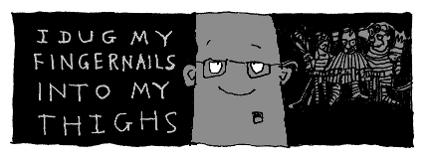
“Let’s smoke a bowl,” Jan said.
Momma’s head snapped around, made Jan blink when the mining light hit her in the face. Momma grinned and nodded, the light bobbing up and down. The bleach stunk so bad, I took a towel and put it over my nose. Jan unfurled a baggie, sprinkled the dried green weed into a paper’s crease.
“I heard you been doing some tree climbing,” Jan said.
“That I was,” Momma said, “that I was.”
“What was that about?” Jan said.
Momma shrugged and covered her face with her hands, the beauty draining out of her fingers a little bit every day. The bleach caused my eyes to water.
“I couldn’t even put it in words,” Momma said.
“I couldn’t get up in a tree to save my life,” Jan said. She ran the loose end of the rolling paper along her tongue. She twisted the ends. “Got too big.”
“You aint big as Denny,” I said through my teary eyes. “He’s the one got her down.”
“Well,” Jan said sparking her lighter, “Aint he the American Dream.”
“I seen things so different,” Momma said, looking towards the hole in the busted-out window. “It was like I could see things growing back.” Tin foil wagged in the winter wind at the edge of the window hole, sparkled in Momma’s lamplight. “I could see how it would be in a thousand years, in a hundred thousand years. Trees growing huge, new dirt layering in, rain coming in drops big as beer cans.”
“Bullshit,” Jan said.
“You could understand the words the birds was singing,” Momma said.
Jan took a hit off the joint. “What was they singing?”
“I don’t know,” Momma said.
“I thought you said you could hear it,” Jan said.
“I could,” Momma said, “but, but I couldn’t.”
Jan took the joint back from Momma. “That’s fucked up.”
“No it aint,” Momma said.
I couldn’t stop my legs twitching. The bleach was eating me alive. It was chewing the skin right off the top of my head.

Jan pushed me back down on the table. “I remember one time,” she said, her eyes starting to pull closed, “when we was little, Hubert stole my brand new fucking bicycle, bent one of the wheels. I lit a Roman candle and started shooting at him and run his bony ass up a tree. He said he wasn’t coming down til I got over it. So I got me a gas can and set the motherfucker on fire.”
“You set Hubert on fire?”
“Shit no. The tree. I set the tree on fire.”
“Good God.”
It was me said, “Then what happened?”
“Hubert come down and put it out. And when he got done,” Jan set the joint down in a mayonnaise jar lid, “I beat the living snot out of him. Yall want some cookies? Them church people left a bunch of packs of cookies.”
“Where they at?” Momma said.
Jan left.
“My head’s burning off, Momma.”
“You ready to dye?” she said.
“Yeah,” I said, “something.”
She dropped my head into the sink, turned on the water. This sounds stupid, but it felt religious the way she rubbed on my head with them rubber gloves.
Momma said, “That’s the tree Hubert and his mother hid in when his daddy got too crazy.”
Jan come back in the room. “Tell me something else,” she said, setting me back on the table, slamming two boxes of double fudge sandwiches down next to me. Momma turned the blow dryer on me, but I could still hear Jan when she asked Momma, “Why’d you climb the tree in the first place? You climbing trees all the time? This something we need to be aware of?”
The joint sat angled into the jar lid on the other side of me from the cookies. Smoke drifted up my nose. The hair dye felt so good after the bleach.
“I was thinking about her,” Momma said, and her lamplight fell on me. I could see her pointing at me through the glare. “I was looking for that place she fell.”
“What for?”
“I had a dream Dawn turned into an owl. I woke up, went out there hunting her.”
Jan picked the joint up out of the lid. “That shit right there is why I love getting high with you.” Jan passed the joint to Momma but I stuck out my hand and took it. Momma painted the dye into my hair with a mascara brush, and I drew the yellow smoke into myself.
“It won’t be no bright green,” Jan said.
“Darker,” Momma said. “It will be darker.” Then they laughed.
“You patch things up with Cora?” Jan said. Cora was my mamaw.
“She don’t know I’m in the world,” Momma said.
My head starting getting fuzzy. I wished I had something to drink.
“Here.” Jan handed me a pop. My hand come out from under the cape and took the can.
“My mother,” Momma said, “is too hard.”
Hard like a rock, or hard like arithmetic? I wondered which my mother meant.
“She makes everything too complicated,” Momma said.
Jan nodded. She rolled another joint.
“I’m supposed to go to school tomorrow,” I said.
“I know,” Momma said, “that’s why we’re doing you this way.” She waved her hands through the air like monster birds was attacking her. “So you’ll be ready.”
Jan smiled, struck fire. “Ready, steady, go,” she said.
Momma dried my hair, and I was glad for the noise. I threw off the cape, which was smothering me. My hair was dyed and Jan and Momma sat back satisfied, like two jungle cats after they’ve eat their fill of wildebeest. They sat there smoking cigarettes, eating missionary cookies. I stood up to leave.
“Where you going?” Momma said.
"You look like a guy,” Fat Jan said as I was going out the door.
The night air hit the back of my neck for the first time in years. The night had warmed up, or the dope had warmed it up. I was out in the yard when I heard Jan say, “She aint never.” Jan and Momma’s cackles tore through the open door, through the hole in the window.

~
I didn’t go back to Mamaw’s. I decided to walk til my hair grew back long. I turned off the road, down into the woods, towards town. Further I walked, more I got scared I would run into Hubert in the dark. I tried to walk quiet. I had picked up the smell of meat off Big Jan. I was sure to draw predators. Hubert would drop down out of the low clouds, the winged monster bird I had feared all weekend, gouge my eyes out with his beak, plunge his talons into the meat of my shoulders, carry me off to tear to pieces and laugh over. I knew that was dope talking, but knowing wasn’t enough.

I wanted to be in school. Not my school. Some other school. A school that was all pencil necks pushing glasses up their noses, sniffing their fingers, smiling to see me come in the room, smiling to see me safe.
The road curved into my path. I stepped down into it. I passed into the darkness of the big rock overhang. I felt someone lead me, an iron band, a dog collar round my neck. But of course there wasn’t. I felt someone jerk a chain and draw me along. But of course they weren’t. In the darkness of the rock overhang, I coughed. Nobody answered. The road steepened down and my feet slapped against the blacktop. It did not feel late, but the houses were dark.
"The train on the tracks at the foot of the mountain sounded like a piano playing in a cowboy movie saloon."
When I stepped off the road again, the mountain swallowed me up. Put the Jonah on me. The snow had melted. The tree limbs were wet and heavy, the leaves underfoot wet and heavy. I went down the mountain a way I had never gone. An owl hooted. The woods dripped. There was light in the woods, but I couldn’t tell where it came from. It seemed it came from the water in the mountain. The total amount of water in the mountain began to freak me out. I did. I freaked out about the water. Stupid. I sat down on a fresh-fallen log. The wind crackled through the leaves clinging to the limbs. Sounded like a clutch of old women whispering at the back of a cold empty church. The light was dwindly and low and I wished you were there.
Who?

Ha ha. I want you to know what it’s like.
Maybe it wouldn’t be Hubert I’d see. Maybe it would be ghosts. Indian ghosts. Packing meat. Or ghost Indian braves moving fast and empty-handed, running from some stupid massacre. Or maybe it would be some scared Civil War boy ghost out there running. Not sure which side is which, only sure he’d took a shot at somebody.
I stood up and every manly story I’d ever been told rushed through me. I drew breath and sat back down on the fresh-fallen tree trunk. The train on the tracks at the foot of the mountain sounded like a piano playing in a cowboy movie saloon. I wanted somebody to tell me everything. Any of them would serve: Decent Ferguson, Aunt Ohio, Mamaw, Momma, Jan. Sit me down and lay it all out. The air went out of me and I imagined a dog’s nose against the underside of my arm. I imagined my father, a big red hunting dog, lying down at my feet.
I began to walk again and directly came into a backyard. A dog barked, and I heard a child talking excited, too late for a child. I veered into the woods and come to an eight-foot drop down to the old road into town. I skirted the rim of the drop until I come to a creek coming off the mountain same as me. I got down in the gulley and come under the road through a four-foot culvert. On the other side I knew where I was even though I couldn’t see. A field opened out in front of me. It was the last beautiful bottom in Canard County, the last place to see how it was for the first white people, the last pocket pasture with its deep dark dirt, the last one that wasn’t road, wasn’t trailer park, wasn’t cigarettes for sale, wasn’t fucked-up mining equipment piled all archaeological. But this last one was going to be our new high school football field. I crossed the field, climbed the horse fence that bound it, thinking how if you, if I, had been a Cherokee, a Shawnee, we would have dreamed to see buffalo, to see elk, on that field and would have thought a farmer’s field no better than a car wash.
I crossed the field, done thinking I could see my happiness by the wee hour waterlight.
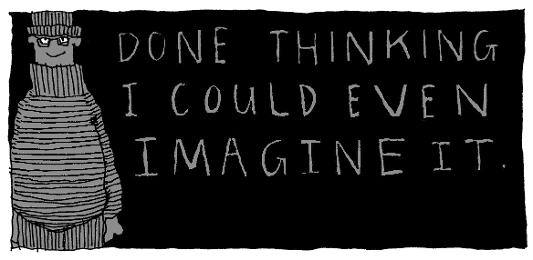
I come up on the halogen freakout of my glass box high school, my shoes caked in yellow clay mud from the churned-up football field. I come across the twinkling black glass river on the Canard County version of some Paris bridge I’d seen in the fog on the television in a black and white movie I couldn’t understand. I come up on the part of the parking lot where the buses brought kids from all over the county and set them out. There in one of the long parking places marked off for buses, I fell flat on my face and slept, my arms spread, the pavement soft, my fingernails digging into the yellow paint.

End Part Three
~
Read Act II, Reckoning, from Trampoline
Part One: Dead Cow in the Creek
Read Act I, Escape Velocity, from Trampoline
